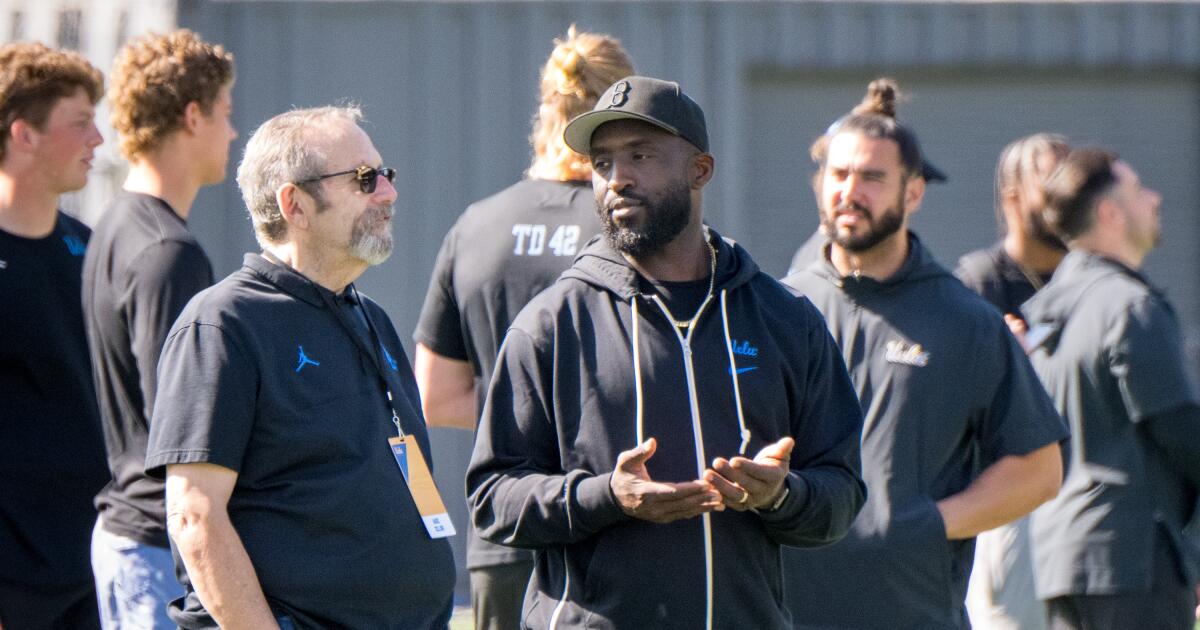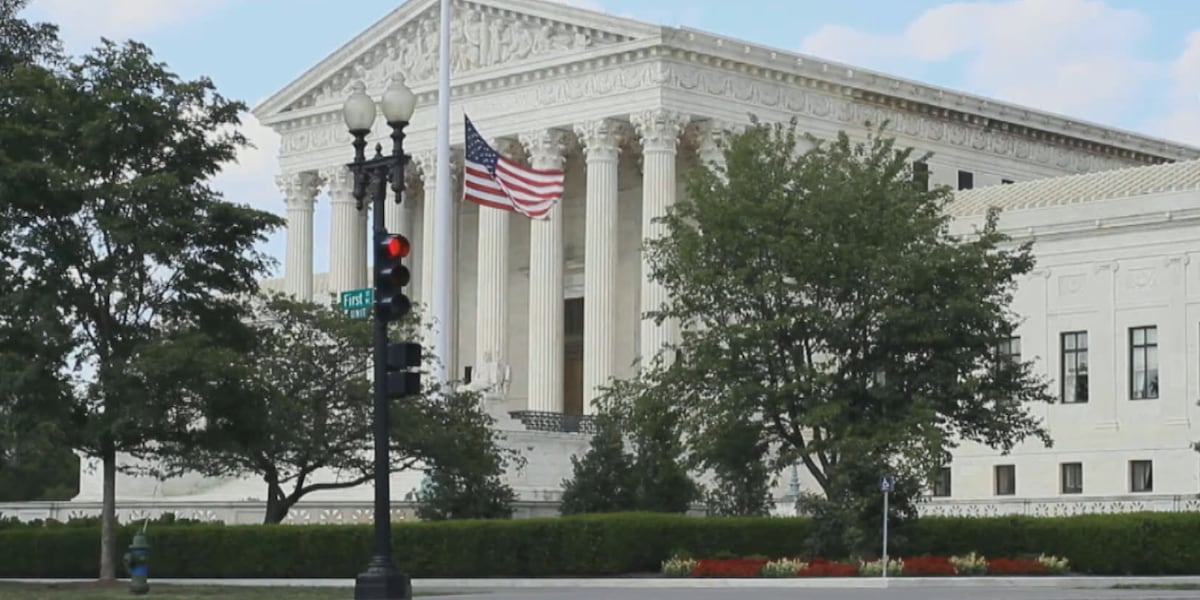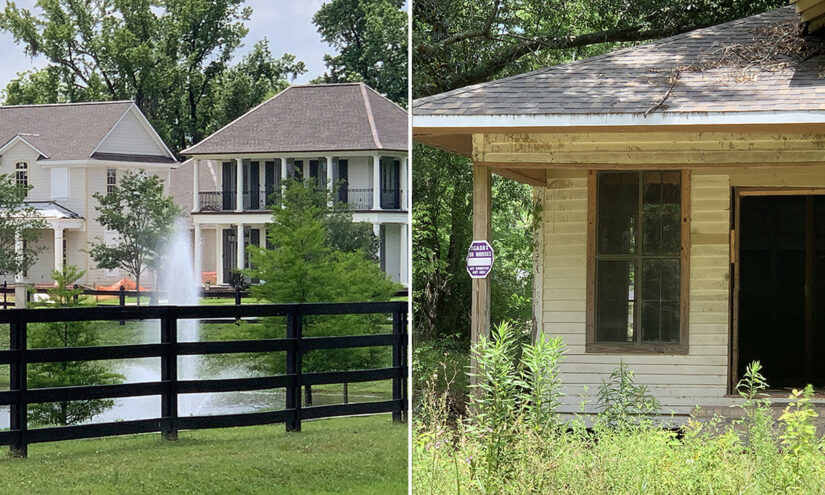When Hip-hop artist Mim “Mimzy” McCoy performs in front of a crowd, it is with a feeling of confidence and empowerment.
She has not always felt that way, in fact, she has felt the exact opposite. But, that was before she finally freed herself from an abusive relationship that lasted six years.
She was the one woman, in the statistic that says one out of every three women will experience domestic violence in their life, according to the World Health Organization.
During that time, she lived her life in fear that she would become another painful Louisiana statistic, a victim of femicide, the intentional murder of women. Louisiana ranks 5th in the nation according to the Louisiana Coalition Against Domestic Violence.
“I’m a living miracle, I have seen the angel of death in person,” McCoy said.
“We live in a world that allows domestic violence to occur,” said Project Celebration’s Outreach and Children’s Advocate Aslan Godfrey, who also stated that the first five 2024 homicides in Shreveport were femicides. “To put it in perspective, in the state of Louisiana, at least 100 children each year lose a parent to domestic violence.”
Located in Northwest Louisiana, Project Celebration is a nonprofit that provides direct services to survivors of domestic violence, sexual assault and children experiencing violence. It currently operates 2 domestic violence shelters that provide safe housing for women and children fleeing domestic violence as well as medical, personal and court advocacy. “Our hotline for domestic violence is ringing all day, whether that’s just for safety planning, or someone reaching out for counseling or financial assistance,” said Godfrey.
It’s a service that McCoy thinks is necessary but did not use herself. Her separation from her abuser took years.
Today McCoy is most thankful to God. During one of the lowest points in her relationship, after years of abuse, she recalls God “speaking” to her. “He told me that my children and I would be restored.” It would take years to get fully free, much more time than it took for her to get into the relationship.
“I wasn’t really looking for anybody to come save me,” McCoy recalls of the beginning of her relationship. However, she admits that it was a troublesome time in her life, as she was living in between homes and couch surfing at friends’ houses. She was also very young, 18. He was several years older.
She remembers it was quick decision to move in with him and now feels she lacked the mental skills to make a more rationalized decision, “There was a lot of me feeling like I was already in the wrong, mixed with the desperation, and then the first man that showed me attention… I was like, yep, I’m moving in with you.”
She had yet to heal from a difficult childhood, leaving her vulnerable without realizing it, “I just didn’t get love as I should have as a child.”
For a while, she felt she was the one in control. She describes herself as a rebellious child who did things the way she wanted. However, that control slipped away, and her personality slowly changed from the toll of emotional abuse she was experiencing.
“There’s so much psychological abuse that goes on with domestic violence. It’s so important to recognize the signs and symptoms,” Godfrey said.
Some of the signs that a relationship is unhealthy:
- Isolating someone form their support system.
- Being verbally demeaning.
- Gas lighting
- Controlling finances
- Preventing a person from making their own choices
- Pressuring a person to do things and using threats or intimidation.
“Domestic violence is never the victim’s fault,” said Godfrey.
It was not long before the abuse became physical in McCoy’s situation.
It was a normal fight, but then it crossed the line, McCoy recalls, “It’s like flashes of lightning… you can’t even think because there’s a fist in the side of your head, or your heads being thrown into something, and you’re completely disoriented and don’t know where you are. There was nothing I could do. He was completely overpowering me.”
McCoy called the police, but when the time came for her to report the domestic violence, she had already listened to all his apologies. “He showed me all this love and then he was like, ‘I’m just I’m so sorry. I’m so sorry,’ and his apology was just so sincere. By the time the police got there, I was like, ‘No, it really wasn’t that big of a deal.’”
She decided to believe in her fantasy that he was her Prince Charming, with all the promises of a better life, “I was trying to figure out how to fix it because I loved him. I had a place to live, I had a man who was attractive, who was going to be contributing to the household, and that was going to be my white picket fence.”
When the next time came, there were more reasons to stay, and a little less of the original McCoy to fight back. She said that with the gaslighting, the narcissism and the manipulation, she was slowly, “being stripped of any bit of myself that I was becoming, or even was.”
“Domestic violence is about power and control,” said Godfrey, “It’s ‘what can I do to keep control over this victim?’, whether that’s mental, physical, emotional, financial, spiritual, there’s so many different types of abuse and tactics that abusers use to keep that power and control over that victim.”
For McCoy that meant controlling her finances, food and transportation, “He controlled every single aspect of my life, so I was completely reliant upon him.” He had also separated her from her family, “He was the only person I had to depend on. He was all I had.”
It also meant she was still trying to ‘fix’ the relationship. McCoy felt that having a child would offer a solution, “I’m going to love the baby so then he’s going to love the baby. This is going to fix him; this is going to fix us.” But, she said, it did the opposite, it made it worse. A second child also did not help.
As the years went by the beatings continued, “it’s like having a record on repeat.” Most of her bruises would be in places that did not show to the public. She learned to disassociate from her body during the beatings, “I would leave my body. I just didn’t want to feel it and if I knew it was coming, I would just literally, because of the pain, I would just leave my body,” she said.
It continued to get worse, the police were called numerous times, McCoy would be in a state of hysteria, and they would ask her is she wanted to go to a hospital. She would say yes. It became a reprieve from her dysfunctional home life.
It would also be the start of her education of what domestic violence was and what were the effects of it. “I would pay attention in groups to what they were teaching us and I would ask them for study material,” McCoy recalls, “I started studying psychology in depth.”
“’How am I going to fix it now?’” McCoy thought, “I was numb, I was so depressed, I was beyond depressed, I was jaded. I felt nothing, but I felt everything.”
She decided she had to get out, there was no fairytale in this story. “My journey of ‘I have got to get the hell out of the situation,’” happened during a particularly bad fight McCoy recalls, “I was in full attack mode, I was sick of it. I was going to fight back.”
It would not be that night, which left her with a broken nose and describing herself as barely escaping death, but it would be soon. “I heard God say to me that I would leave, I would live, I would leave when I least expected it and literally the next day is when I left.”
Her life after she left was one of hiding, “I didn’t leave the house unless I absolutely had to, like if I had to go to the grocery store, and it was just constantly looking over my shoulder.”
“A lot of survivors that we know will deal with PTSD,” said Godfrey, “You’re constantly hyper vigilant, wondering, ‘What’s next? What’s going on? Is something going to happen? Am I safe?’”
McCoy started to remember who she used to be, “I remembered I was talented and I’m still talented. So, I just started painting and writing and rapping, I poured all of myself into it.”
“It was really my grace,” McCoy says about her art, “It just opened it up for me to be able to see myself as a beautiful talented, intelligent, loving kind and not sick person. Whereas I had been told the entire time I was with him the exact opposite of that.”
“I’m free,” she says 10 years later, “I decided I wasn’t going to look over my shoulder anymore. It’s pretty cut and dry. I just decided that I was not going to be scared to live.”
“It is such a “taboo” topic to talk about,” said Godfrey, “but it is so necessary to educate our youth and break cycles of generational trauma.”
Today McCoy lives her life with a lot of introspection, she relies on “knowing there’s a higher power that’s in control of everything. Sometimes, you have to let go of the situation in order to gain control of the situation.”
“For a very long time, I was suppressed, I couldn’t speak, I couldn’t do anything. I had no ability to reach out for help. And then one day, all of the heart and all of the emotions surfaced.” recalls McCoy who began exploring her love of writing and music. “I put my poetry into rap,” she said, “I was able to get all of this emotion and all of this hurt and all of this pressure up and out of me.”
“Never give up,” McCoy says about the journey of healing, “no matter how many times you have a panic attack, no matter how many times you have anxiety attacks, no matter how many times you feel like you may never trust anybody again.”
As a way to help other victims McCoy has joined the Caddo/Bossier Domestic Violence Task Force. She believes that telling her story not only helps her but also might help others.
“Anyone can be victimized by domestic and sexual violence. Anyone can also be the perpetrator of domestic and sexual violence,” said Godfrey, “Whenever someone asks me what “advocacy” is, I tell them that it looks different every day. My job is to show up educated, unbiased and collected in order to meet survivors where they are at in their healing journey.”
If you or someone you know needs help call:
























